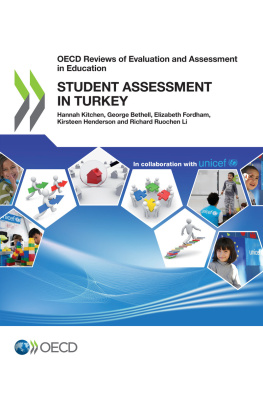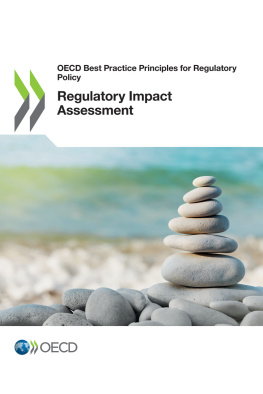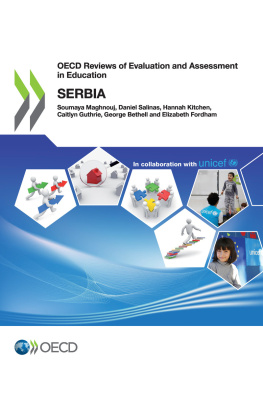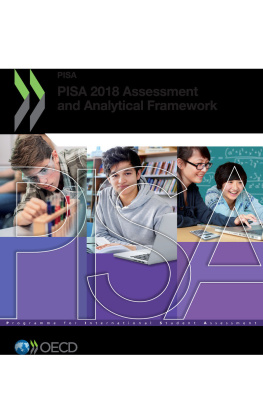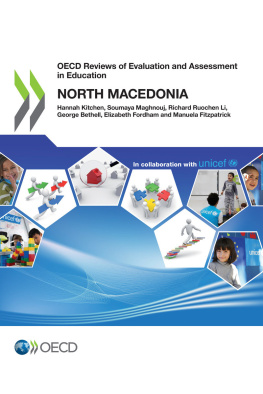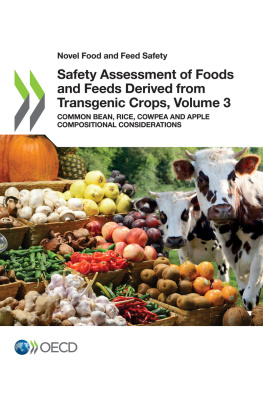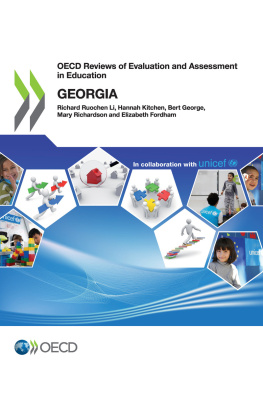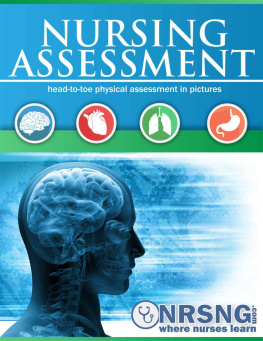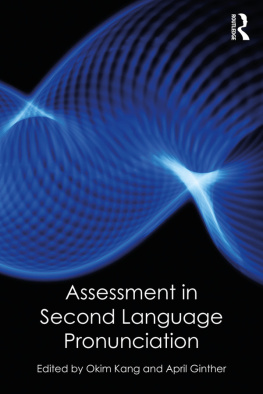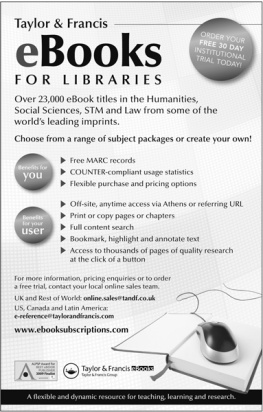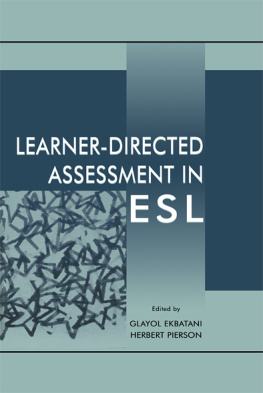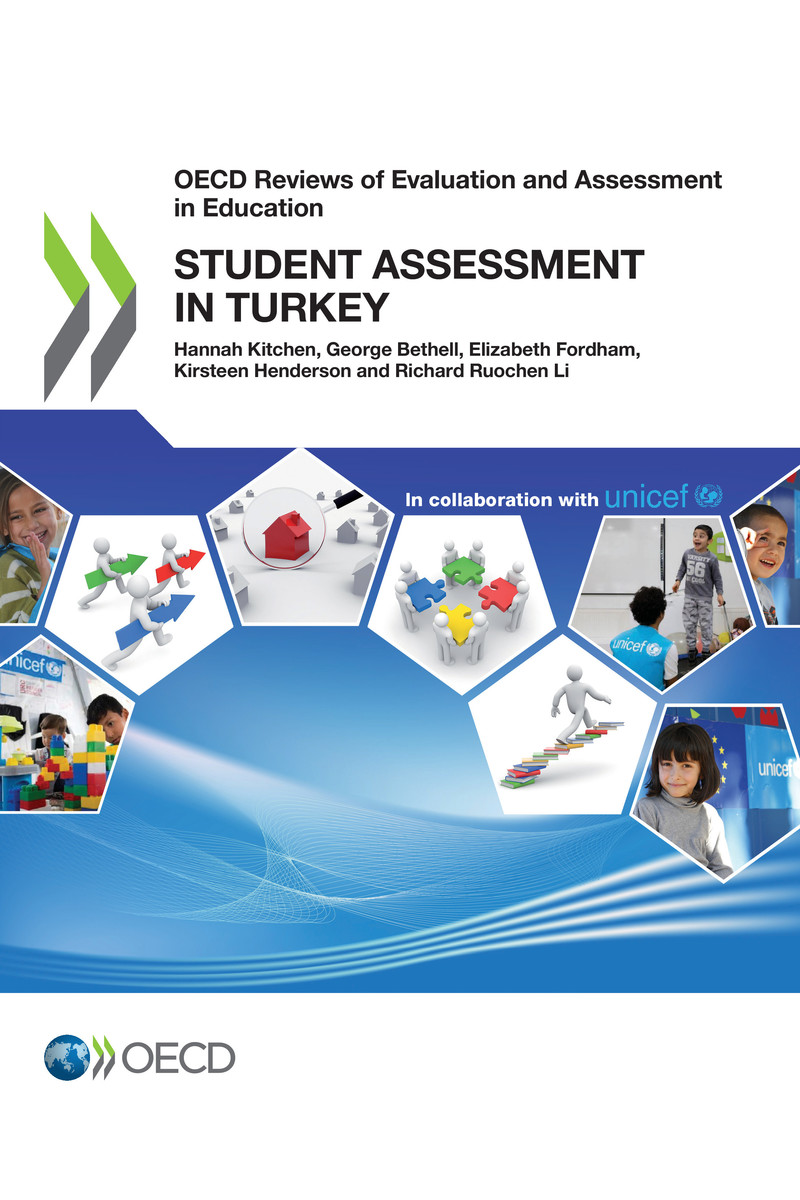Turkey has made remarkable progress in expanding access to education and improving quality over the past two decades. Yet, as the countrys young people near the end of schooling, nearly half lack basic competencies for life and work. Aware of the need to ensure that all children have a fair chance to do well, the Ministry of National Education is reforming education to better meet the individual needs of each student.
This review was undertaken as a partnership between the OECD and UNICEF. The co-operation between our two organisations has meant that the review has benefitted from our complementary experience and expertise of Turkeys education system, and international research and best practice.
The review was commissioned by and developed in close partnership with the Ministry of National Education. The ministry asked for advice on how student assessment including teachers classroom assessments, national examinations and the national assessment can best support learning. To support the countrys ambition that all students develop the complex, transversal competencies that are important in the 21 st century, the report recommends:
This review comes at a time of major change in Turkeys education system. During the review, important reforms to the national examinations, teacher appraisal and school evaluation were underway. A new national strategy for education Vision 2023 was published. The ambition of these reforms is significant and it has not been possible to fully analyse or integrate all the planned changes. However, the review discusses many of the policy options that now face Turkey, providing recommendations to create a system where a broader range of assessments is used to meet individual learners needs.
We hope that the review will be a useful reference and guide for Turkey as it reforms assessment and education to promote excellence for all.
Acknowledgements
This review was developed in co-operation with UNICEF, whose staff provided valuable guidance and direction. We are indebted to the guidance, support and insights of the UNICEF Turkey office, notably Philippe Duamelle, UNICEF Representative in Turkey, Brenda Haiplik, Chief of Education, Mehmet Buldu, Education Specialist, Yesim Hanci, Education Officer, and Ayin Ta, Education Programme Associate.
The review team would also like to thank the Turkish government, under the leadership of the Ministry of National Education for their support and contributions to the review. The review has benefited from the support of Deputy Minister, Mahmut zer, and his team.
We are very grateful to the officials and education experts from the Ministry of National Education and beyond, who graciously shared their insights and knowledge with us. We would like to thank officials from the General Directorate of Measurement, Evaluation and Examination Services in the Ministry of National Education who oriented and guided the OECD team throughout the review. In particular, we would like to thank Director General Sadri ensoy and the former Director General Bayram Cetin, as well as, Bayram Taran, Kemal Blbl, Amine Candemir, Mehmet Ali Aydomu, Meryem Pekta, Mehmet Ali Ikolu, and Emel Ilican. We would also like to extend our thanks to staff from the Board of Education, Strategy Department, Board of Inspection, Information Technology Department, General Directorates of Teacher Training and Development, Special Education and Counselling Services, Basic Education, Secondary Education, Technical and Vocational Education, Religious Instruction, European Union Affairs and Foreign Relations and the Provincial Directorate of Ankara.
We would like to thank the Deputy Head of the Measurement, Selection and Placement Centre (SYM), Ahmet Yaar zban, as well as Hlya Kodal Sevindir, Emrah Ertzn and Nihal Buldu, who provided valuable understanding of the examination at the end of compulsory education.
We sincerely thank all the participants in the review visits, including officials from the Ministry of National Education, the Measurement, Selection and Placement Centre, the Turkish Statistical Institute, the World Bank, researchers, non-governmental organisations, school leaders, teachers and students who kindly gave their time to share their views, experience and knowledge with us. We would especially like to thank the schools in Ankara Province for welcoming us so warmly during our review visits.

